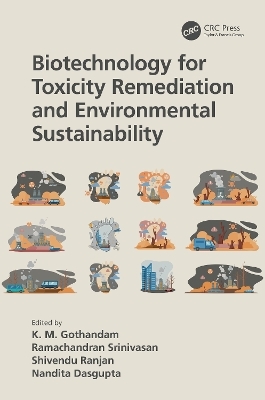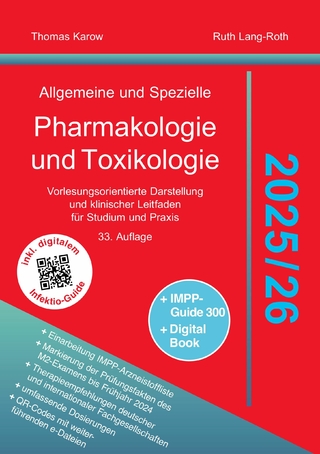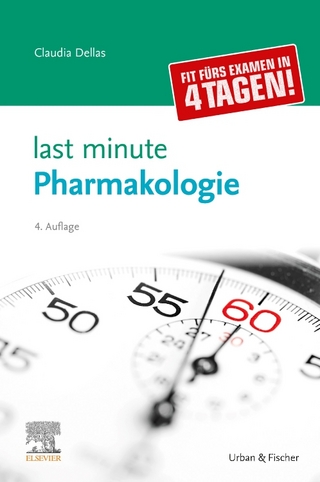
Biotechnology for Toxicity Remediation and Environmental Sustainability
CRC Press (Verlag)
978-1-032-31923-0 (ISBN)
Features
Covers all aspects of Biotechnological application in the environment
Discusses sustainable technology for the wastewater treatment and value-added products from wastewater
Focuses on research activities Green corrosion inhibitors, bio-electrochemical systems, food safety and security, and antimicrobial resistance
The book is a valuable resource for the undergrad and graduate students, doctoral and post-doctoral scholars, industrial personnel, academicians, scientists, researchers, and policymakers involved in understanding and implementing applications of biotechnology for environmental toxic remediation.
Dr. Gothandam K. M. is a Professor in the Department of Biotechnology, School of Bio Sciences and Technology, Vellore Institute of Technology, Vellore. He obtained his Ph.D. (2002) from Bharathiar University, Coimbatore, India and gained Post-Doctoral experience (2002-2007) in the School of Life Sciences and Biotechnology, Korea University, Seoul. He also served as Head of the Department of Biotechnology and Dean, School of Bio Sciences and Technology at Vellore Institute of Technology, Vellore, India. His research interest includes Algal Biotechnology, Plant Functional Genomics, Plant and Microbial Metabolites, Environmental Biotechnology etc. He has published many scientific research and review articles in international peer-reviewed journals and refereed many high-impact journals. In addition, he successfully executed eight projects funded by DBT, DST, and CSIR as PI and Co-PI. He is a fellow of Royal Society of Biology, Biotech Research Society of India, Association of Biotechnology and Pharmacy and National Academy of Biological Sciences. Dr. Ramachandran Srinivasan is a Scientist at the Center for Ocean Research, Col. Dr. Jeppiaar Research Park, Sathyabama Institute of Science and Technology, Chennai. He has been National Post-Doctoral Fellow of Science and Education Research Board (SERB). He obtained his doctorate from Vellore Institute of Technology, Vellore. He did his postdoctoral research at International Centre for Genetic Engineering and Biotechnology (ICGEB), New Delhi. His research interests include metabolic engineering of algae and photosynthetic organisms for stress tolerance, metabolite production, and other high-value-added products. He is also an active team member of SERB and BIRAC funded projects. Dr. Shivendu Ranjan is currently working as Assistant Professor at the Indian Institute of Technology Kharagpur (IIT Kharagpur) and focusing to work on Nanomedicine, Nanotoxicology, and Nano-nutraceuticals. Dr. Ranjan is a Bioengineer from VIT Vellore and passionate about Nanobiotechnology. He is a Life Fellow of many reputed scientific societies like, (i) Indian Chemical Society; (ii) The Linnean Society of London, (iii) Indian Engineering Teachers Association, and (iv) Bose Science Society. He is also an Associate Editor of Environmental Chemistry Letters (Springer journal of 9.02 Impact Factor). After graduating from VIT Vellore, Dr. Ranjan has served many organizations like, (i) Indian Institute of Food Processing and Technology (MoFPI, Govt of India); (ii) E-Spin Nanotech, SIIC, IIT Kanpur, (iii) University of Johannesburg; and (iv) Gujarat Biotechnology Research Centre, (DST-Govt of Gujarat). Throughout his research journey, he has 01 WIPO Patent, 55 scientific publications, 34 edited books and 2 authored books. Dr. Nandita Dasgupta is currently a Maria-Zambrano Fellow at the International Research Center in Critical Raw Materials for Advanced Industrial Technologies (ICCRAM), University of Burgos, Spain and exploring towards sustainable nanotechnology in minimizing the toxicological implications of nanomaterials. Her area of interest are Biomaterials, Nanobiotechnology, Toxicology, and Immunology. Earlier she has worked at the Institute of Engineering and Technology, Lucknow, Uttar Pradesh, India where she has taught M.tech students and has taken initiations for establishing a lab on Biomaterials & 3D Bioprinting. During her tenure at LV Prasad Eye Hospital, Bhubaneswar, Odisha, India. During she has worked on immunological ophthalmology in a consultancy of Santen Pharmaceutical, Osaka, Japan. She is the Associate Editor of Environmental Chemistry Letters. She has received several awards and recognitions from different national and international organizations.
Preface. About the Editors. List of Contributors. Recent Literature on Biosorption as a Sustainable Environmental Technology to Remove Pollutants. Production of Biofuels and Value-Added Products Using Anaerobic Digestion of Wastewater. Biodiesel Production by Organic Transformations. An Overview of Green Corrosion Inhibitors. Biochemical, Molecular, and Microbial Ecological Aspects of Bioelectrochemical Systems. Food Microbiome: Ecology, Functions, and Emerging Trends in Food Safety and Security. What We Know and What We Don’t on Antimicrobial Resistance: A Call for Action. Overall Thymoquinone Pharmacological Properties and Its Use as an Anticancer Agent. Function of ZnS Nanoparticles on Stress-Mediated Apoptosis in Mouse Retinal Pigment Epithelial Cells. Index.
| Erscheinungsdatum | 09.02.2023 |
|---|---|
| Zusatzinfo | 3 Line drawings, color; 38 Line drawings, black and white; 5 Halftones, color; 2 Halftones, black and white; 8 Illustrations, color; 40 Illustrations, black and white |
| Verlagsort | London |
| Sprache | englisch |
| Maße | 156 x 234 mm |
| Gewicht | 620 g |
| Themenwelt | Studium ► 2. Studienabschnitt (Klinik) ► Pharmakologie / Toxikologie |
| Naturwissenschaften ► Biologie ► Biochemie | |
| Technik ► Umwelttechnik / Biotechnologie | |
| ISBN-10 | 1-032-31923-2 / 1032319232 |
| ISBN-13 | 978-1-032-31923-0 / 9781032319230 |
| Zustand | Neuware |
| Haben Sie eine Frage zum Produkt? |
aus dem Bereich


